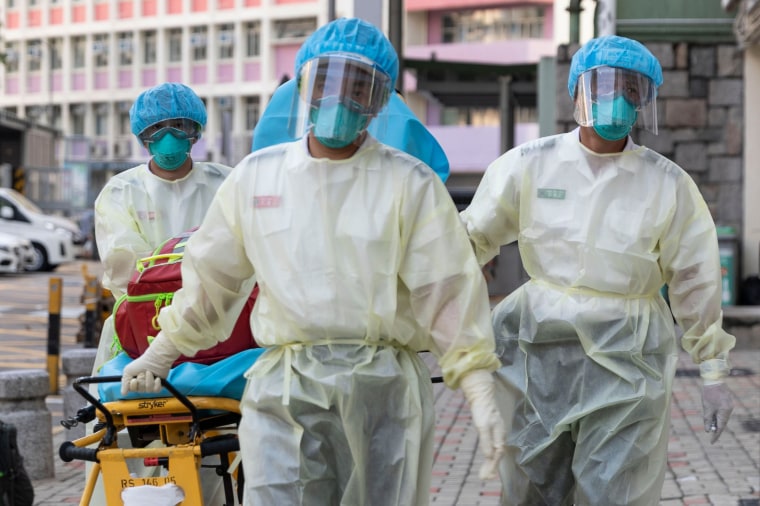A man in Hong Kong has become the first confirmed patient to be infected with the coronavirus a second time, according to researchers at the University of Hong Kong.
The finding suggests that some patients who recover from COVID-19, the disease caused by the coronavirus, may have only short-lived immunity from reinfection. The case will likely also be significant for scientists who have been working on treatments using antibodies from recovered coronavirus patients, and those who have been scrambling to develop a safe and effective vaccine, though it’s too soon to draw any firm conclusions.
But the research is not necessarily cause for panic. Reinfection is common with other coronaviruses. Akiko Iwasaki, a professor of immunobiology at Yale University, tweeted shortly after the study was released that the study did not show anything unexpected.
"This is no cause for alarm - this is a textbook example of how immunity should work," she wrote.
The 33-year-old man in Hong Kong developed mild symptoms in late March when he was first diagnosed with COVID-19, the researchers at the University of Hong Kong wrote in a study that has been accepted for publication by the medical journal Clinical Infectious Diseases. The patient was hospitalized March 29, but his symptoms subsided and he was discharged April 14, according to the study.
The second infection occurred more than four months later, reportedly after the man returned to Hong Kong from Spain, via the United Kingdom. The patient tested positive on Aug. 15 and was hospitalized but remains asymptomatic, according to the study.
The researchers compared the virus’ sequenced genomes after both infections and found that the second infection appears to be a slightly different virus strain from the initial one. The scientists said this confirms that the case is a true reinfection, rather than a positive result due to a lingering first infection.
Microbiologist Brendan Wren, a professor at the London School of Hygiene and Tropical Medicine in the U.K., called the reinfection a “rare example” and said it’s not unusual to find different virus strains as the pandemic evolves.
“We do expect, as with all viruses, that they do mutate over time,” he said, but added that it’s too soon to know what those mutations mean, such as whether the changes mean the coronavirus is becoming more or less virulent.
Still, Wren stressed that with more than 23 million confirmed coronavirus cases worldwide, the newly identified reinfection should not derail global vaccine development efforts.
Early research on coronavirus antibodies had found that their levels waned after a few months, which could suggest that any potential immunity to the virus may not last long. But it’s not yet well understood whether antibodies do, in fact, provide immunity to the virus and more research is needed.
Dr. Anthony Fauci, who heads the National Institute of Allergy and Infectious Diseases and is the top infectious disease expert in the United States, has previously said that immunity to other known coronaviruses, including those that cause the common cold, typically lasts only three to six months.
“It may be completely different with this coronavirus,” he said in an interview with the medical journal JAMA. “It may be that people induce a response that’s quite durable. But if it acts like common coronaviruses, it likely is not going to be a very long duration of immunity.
Dr. Stanley Perlman, a professor of microbiology and immunology at the University of Iowa, said it’s encouraging that the patient was asymptomatic after the second infection, which could suggest that the man’s immune system was at least able to protect him from becoming ill a second time.
“We could look at this and say that the person had enough immunity that he didn’t have a severe infection the second time, that it was so mild he didn’t have any symptoms at all,” Perlman said.
What’s not yet known, however, is how contagious a reinfected patient could be, he added. This factor, particularly with regards to asymptomatic spread, could have important consequences for communities still dealing with high rates of transmission.
Perlman said the new findings are not necessarily bad news, and it will take more than one case to truly understand what reinfections could mean for the evolution of the pandemic.
“We don’t know what the future will hold,” he said, “but this is really a glass half full situation in my mind.”

